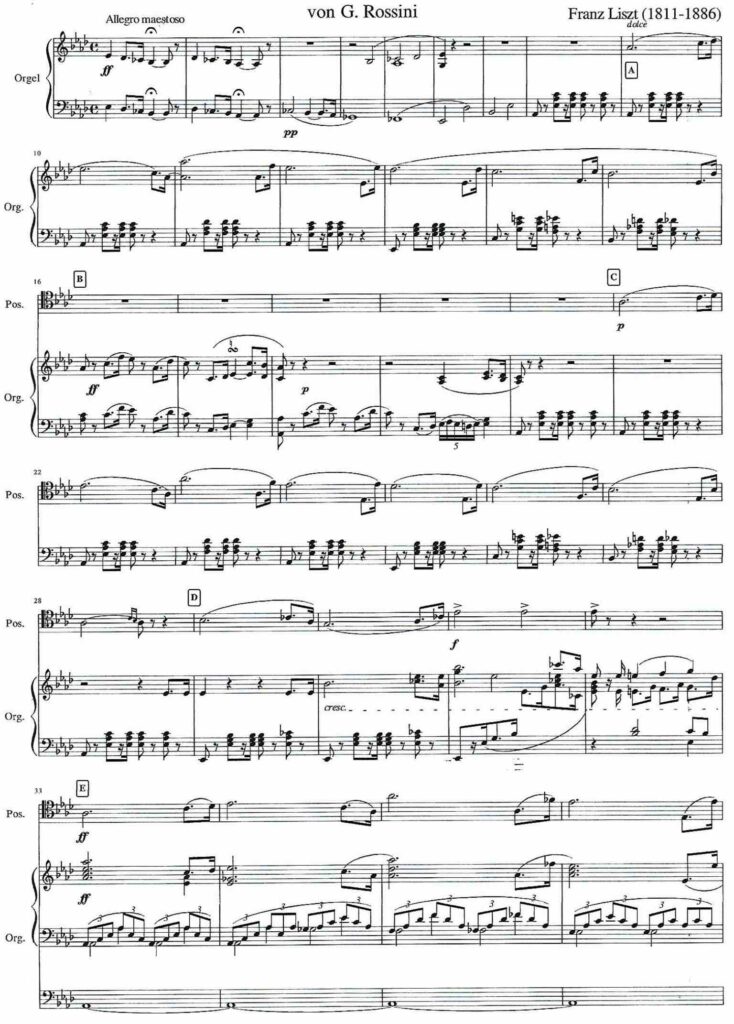Franz Liszt (1811-1886) „Cuius animam“, Aria from Stabat mater by G. Rossini for organ and trombone

Das Stabat mater (nach dem Gedichtanfang ‚Stabat mater dolorosa‘, lat. für ‚Es stand die Mutter schmerzerfüllt‘) ist ein mittelalterliches Gedicht, das die Mutter Jesu in ihrem Schmerz um den gekreuzigten Jesus als zentralen Inhalt hat. Gioachino Rossini vertonte sein Stabat mater zwischen 1831 bis 1841. Den zweiten Vers mit ‚Cuius animam – „Ach! wie bangt ihr Herz‘ – beginnend, hat Rossini dem Tenor als Aria mit Begleitung des Orchesters zugewiesen.
Franz Liszt hat verschiedenste Transkriptionen von fast 100 Komponisten vorwiegend für Soloklavier verfasst. Einige Arrangements hat er auch der Posaune und den Blechbläser zugeeignet. Im Weimarer Liszt Museum findet sich eine fast vollständige Handschrift der Bearbeitung von Rossinis Arie ‚Cuius animam‘ für Orgel und Posaune mit dem Schlussvermerk „Dem vortrefflichen Musiker dem Freund, Carl Eduard Große. F. Liszt 24. Juli.“ Sie zeigt genaueste Vortragsbezeichnungen in der Posaune von Liszts Hand.

The Stabat mater (after the beginning of the poem ‘Stabat mater dolorosa’, Latin for ‘The mother stood in pain’) is a medieval poem that has the mother of Jesus in her pain for the crucified Jesus as its central content. Gioachino Rossini set his Stabat mater to music between 1831 and 1841. The second verse with ‘Cuius animam – Ach! how bangs your heart’ – beginning, Rossini assigned the tenor as an aria with accompaniment of the orchestra. Franz Liszt wrote a wide variety of transcriptions of almost 100 composers, mostly for solo piano. He also dedicated some arrangements to the trombone and the brass. In the Weimar Liszt Museum there is an almost complete manuscript of the arrangement of Rossini’s aria ‘Cuius animam’ for organ and trombone with the final note “To the excellent musician’s friend, Carl Eduard Große. F. Liszt July 24.” It shows the most precise performance markings in Liszt’s trombone.
| sound sample / Tonbeispiel | score/parts PDF download: € 14,- | add to cart / in den Warenkorb |
